What kind of people love being alone?

Nowadays, it is believed that a successful person should be open and sociable, and his whole life should be in full view. On the other hand, history shows that very many successful historical figures did not strive to constantly be in the company. To communicate with such people was equally comfortable for them and for you, it is worth finding out which people love loneliness and how to properly interact with them.

Who are they?
Even in ancient times, it was noticed that some people prefer to be in society all the time, while others avoid noisy meetings and tend to spend time in company with their own thoughts. However, early researchers of human behavior did not yet separate people according to the direction of their thoughts and instead operated on complex concepts of temperament. Only in the 19th century Carl Jung divided all people into extroverts, whose vital energy, according to his definition, was directed towards the outside world and communication with others, and introverts, who were focused on the world of their own thoughts.
Term "introvert" formed from the Latin phrase intro vertere, which means "to turn inward." German psychologist Hans Eysenck borrowed this word from Jung and slightly changed its meaning. If Jung's concept referred not so much to human behavior as to his motives, then Eysenck used this term to describe all people who prefer loneliness and avoid communication.
It is worth considering that in psychiatry, the meanings of familiar terms are slightly different from those that are widespread.So, according to Karl Leonhard, extroverts are people without strong will, easily amenable to outside influence, but introverts he called strong-willed people who are able to act without regard to the opinions of others.
Thus, in modern mass culture, an introvert is a person who loves loneliness and does not seek constant communication with the people around him.
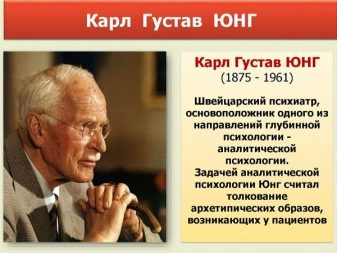

Main character traits
The nature of introverts in most cases has the following basic features:
- openness to new ideas;
- independence from other people's opinions;
- organization and the desire to establish their own set of rules for themselves and those around them;
- the presence of rigid boundaries of what is allowed in communication (and at the same time respect for the personal boundaries of other people);
- love of reading;
- the ability to concentrate on a set goal and achieve a result regardless of external stimuli;
- punctuality and meticulousness even in small things;
- calmness and resistance to negativity (constant reflection and fixation on one's own thoughts make lonely people very resistant);
- self-sufficiency;
- awareness of the value of time (if the introvert has honored you with a conversation, you can be sure that the time spent with him will not be wasted);
- loyalty to selected friends and relatives (if an introvert has already included you in his social circle, then you can be sure that he will always be faithful to you and will not exchange for new acquaintances who seem more interesting to him);
- striving for self-improvement.
Interestingly, many of these qualities make introverts natural leaders. At first glance, this conclusion may seem counterintuitive. But the ability to ignore other people's opinions and make the most balanced decisions allows introverts to find the right way out of most situations and lead others.

Psychologists have found that the nature of introverts often affects not only their behavior, but also their habits. Such people:
- prefer practical things (including clothes) to beautiful but impractical;
- Like quieter music and less action-packed movies than extroverts
- try to isolate their workplace from strangers and rarely decorate it.
Do not think that extra- and introversion will forever determine a person's entire life and affect all his actions. Even the most inveterate lover of loneliness can find it pleasant to spend time in the company of a good companion, and even the brightest extrovert can enjoy a day of peace and quiet. This feature was noticed by the creator of the term "introvert" Carl Jung.
Recent research has shown that in situations where communication with people is unavoidable, introverts can appear more extroverted to others than true extroverts. This is due to the fact that the public behavior of extroverts is intuitive and organic, and they hardly think about their words, gestures and facial expressions, while introverts have to think about every word and movement.
As a result, they sometimes manage to create a deeper and more attractive image for others than the direct immediacy of real extroverts.

How to interact with people?
So that communication with people striving for loneliness is not a burden for them or you, it is worth following simple and completely logical rules.
- Do not impose... If the lover of loneliness is not interested in communicating with you, then you most likely will not be able to convince him.
- Respect boundaries. Introverts value privacy a lot, so don't try to infiltrate where they are not going to let you in yet. Time will pass, and if you can win the trust of such a person, he himself will fully open to you.
- Respect his time. Lovers of loneliness know the value of time and always speak to the point. Therefore, try to be laconic.
- Never rush such people. It is important for them to formulate a thought as accurately as possible, and this takes time. If you pull answers from them, they will get confused and, most likely, stop talking.
- Don't interrupt... If a lover of loneliness speaks, he should never be disturbed. Otherwise, he will think that you are not interested in him.
- Show interest... Despite the fact that introverts do not depend on other people's opinions and do not need constant emotional support, it is extremely important for them that their interlocutor has a sincere interest in them, and not just kill time with a conversation.
- Most importantly, don't let labels and stereotypes obscure the person.... Even if someone from your acquaintances or relatives fits all the signs of an introvert, this does not mean that he can be avoided and ignored, counting on the fact that he is not interested in your society. Even the most inveterate lover of loneliness may need support or company.
It might seem that so many rules make communicating with introverts a daunting task. At first, it will be difficult for you to even strike up a conversation with such a person.
But if you manage to find an approach to it, then you will get a devoted and interesting friend in communication.

Famous lovers of solitude
Historically, introverts have been successful in areas where inner insight and thought were far more important than teamwork. It is not surprising that among the world famous poets, artists, composers and especially scientists, introverts make up almost the majority.
The most successful introverts in science.
- Isaac Newton - the isolation of the great physicist was well known to his contemporaries, and in many respects "thanks" to such a trait of his character, the genius did not manage to find a spouse. He did not have real friends either, and almost the entire social circle of the talented scientist was reduced to colleagues and students. But even communicating with people like himself of great intelligence, Newton contrived to enter into conflicts with them, if he believed that they were violating a strict set of rules established by him. His conflicts with Robert Hooke, John Flamsteed and Gottfried Leibniz are widely known. Despite such a complex nature, today Sir Isaac Newton is rightfully considered one of the fathers of modern physics.
- Albert Einstein - The great physicist laid the foundations of the world-famous "General Theory of Relativity" not in lecture halls or at scientific conferences, but as a modest clerk in the Swiss patent office. It was this kind of work that allowed Einstein to avoid communicating with a large number of people and concentrate on his scientific research. Unlike Isaac Newton, Einstein was happily married twice and had many friends around the world, but even as a world celebrity, he always preferred books and formulas to communicating with the public.
- Stephen Hawking - the person who changed our views on the Universe was chained to a high-tech wheelchair almost all his life and could communicate only with the help of a special computer. This, of course, severely limited his ability to interact with people, so that he could be called an unwilling introvert. But Stephen himself in an interview with the BBC admitted that from his youth he felt like an introvert and did not seek the company of other people. Perhaps it was this kind of character that allowed him to heroically endure a serious illness and not break down, like many in such a situation, but reach new scientific heights.
Paradoxically, there were also many prominent politicians among introverts.
Perhaps the ability to focus on their own thoughts helped them make the right decisions.

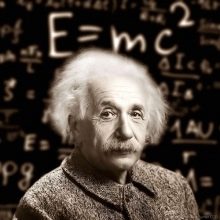
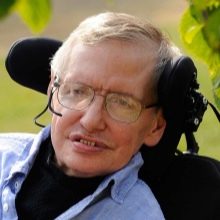
The most famous introverted politicians.
- Abraham Lincoln - thanks to his perseverance and desire for self-development, one of the best US presidents in history managed to independently master the literacy, and then get a lawyer's license without specialized education.It was the ability not to look back at the opinions of others that helped Lincoln make the historic decision to abolish slavery, and then win a difficult Civil War.
- Mahatma Gandhi - the ability to listen to oneself and calmly face any blows of fate helped the fighter for Indian independence to succeed in this difficult mission.
- Al Gore - these days, the topic of global warming has become the political mainstream, but just 10 years ago, it was Al Gore who was one of the few who constantly raised this issue in his public speeches. If the vice president was more dependent on the opinions of others, who thought he was weird because of his obsession with the environment, he would never have succeeded in popularizing "green technologies."
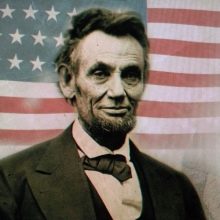
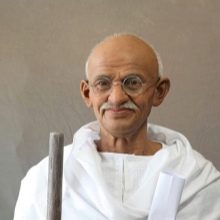

Thanks to perseverance, self-sufficiency and an unusual mindset, lovers of loneliness manage to achieve success even in such public professions as music, cinema and sports. Here are just a few of the introverted celebrities:
- Keanu Reeves;
- Johnny Depp;
- Audrey Hepburn;
- Meryl Streep;
- Salma Hayek;
- Courtney Cox;
- Lady Gaga;
- Michael Jordan;
- Kareem Abdul-Jabbar.
As can be seen from this far from complete list, if desired, an introvert can achieve in any field of activity the same, if not more, success as the brightest and most popular extrovert.











I'm an introvert, but I like Action in movies, and I like any music, not as the author said - introverts like calm music and calm movies.